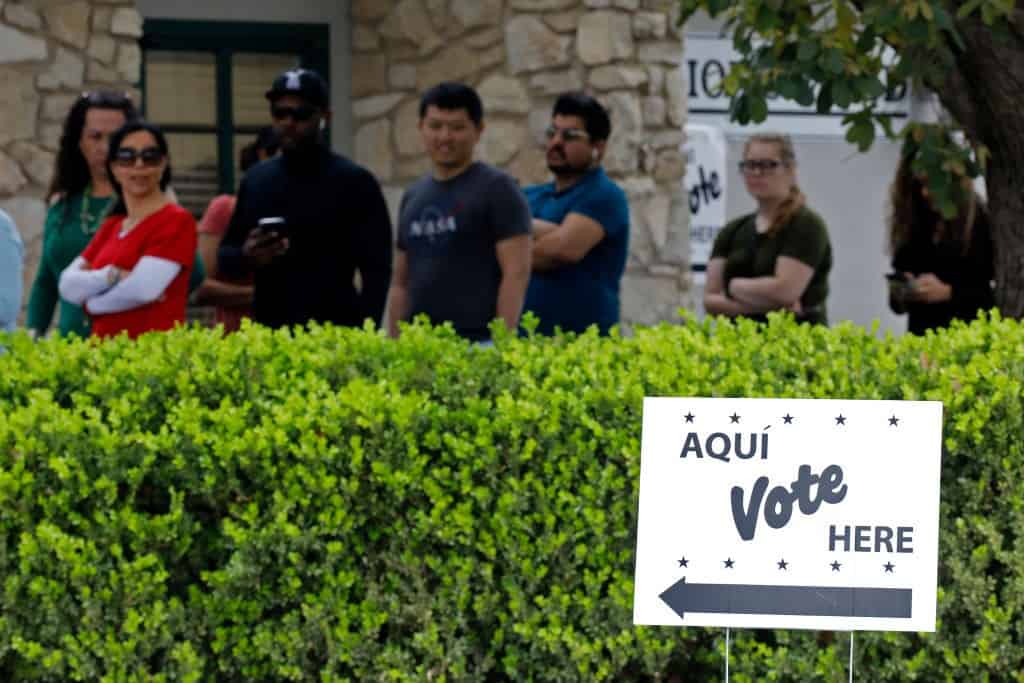Turning Texas blue is not going to be easy, and it’s going to be nearly impossible without the support of Latinos.
As part of its ongoing virtual programming, the Dallas County Democratic Party held a discussion last Friday with former state Senator Leticia Van de Putte (a candidate for lieutenant governor in 2014) and Sarah Saldaña, a former U.S. Attorney and the director of Immigration and Customs Enforcement under President Obama. Moderated by Regina Montoya (who full disclosure is my mother), the discussion centered around engaging the Latinx voter.
It’s estimated that by 2022, Latinos will be the largest population group in Texas. The only other state with a higher population of Latinos is California. However, Latinos in Texas vote at a disproportionately lower rate.
Galvanizing the Hispanic community in Texas has always been a puzzle, but now it has even more complications: a presidential candidate who struggled with Latinos, and a national pandemic.
On Super Tuesday, Vice President Joe Biden won Texas (though by less than 5 percentage points). His victory was largely fueled by African-American and older voters. According to exit polls, Senator Sanders won 41 percent of Latinx voters in Texas. That’s a stark increase from 2016 when he only won 29 percent against Secretary Hillary Clinton.
In her discussion of engaging Latinx voters, Van de Putte credited Sanders and his team for an authentic outreach in the state. Two of her own children were supportive of Sanders in the primary. She also believes that the Sanders ground game, as well as his advertising on television and radio stations in different parts of the state were a huge strength.
Montoya brought up an op-ed in the New York Times that showed increasing support from Latinas (as well as ambivalent voters) would essentially guarantee a Biden victory.
Both Van de Putte and Saldaña agreed with that assessment, and that Latina women were extremely opposed to Trump even before the pandemic. Van de Putte also noted that the current COVID-19 crisis has really exacerbated disparities of healthcare and economic equity for Latinos. She would like to see Democrats engaging with Latinas about how “this pandemic has exposed the policies and ineptness of this administration.” With canvassing now impossible, she believes conversations can continue with phone banking and texting.
Saldaña also pointed out that outreach can simply start in the home. “Let’s make sure within our own family, they understand the importance [of voting], and take a friend with you.”
Nicolas Quintanilla, who founded the Young Latino Democrats of Dallas County earlier this year, sees firsthand this new dynamic on engaging Latinos. At the group’s inaugural meeting about 100 young Latinos showed up to party headquarters.
Since then with in-person events postponed indefinitely, Quintanilla is continuing the group’s activity through Zoom meetings and a robust social media presence. Ideally, Quintanilla would like to start virtual concerts as a way of keeping potential voters engaged.
“We all [need to] come together as one team, and as one community, and as one campaign, in order to defeat Donald Trump.”
Photo: Edward A. Ornelas/Getty Images
A longtime writer and journalist, Jessica was thrilled to join the Texas Signal where she could utilize her unique perspective on politics and culture. As the Features and Opinion Editor, she is responsible for coordinating editorials and segments from diverse authors. She is also the host of the podcast the Tex Mix, as well as the co-host for the weekly SignalCast. Jessica attended Harvard College, is a onetime fitness blogger, and has now transitioned to recreational runner (for which her joints are thankful).





